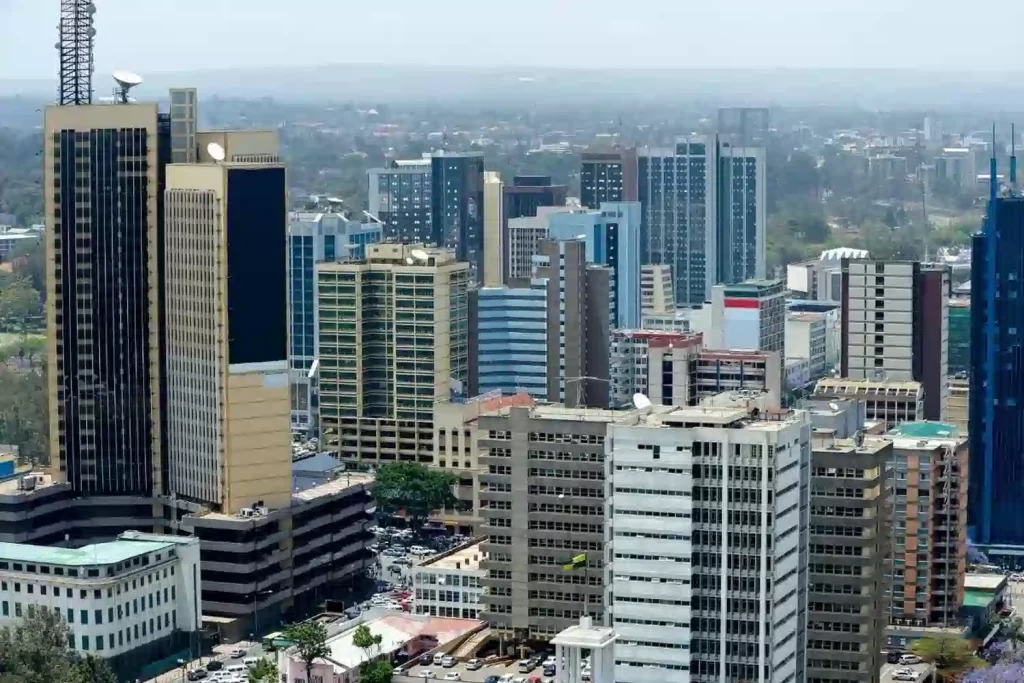Triggered in 2015 by Nigeria’s economic woes due to declining oil revenues, Mevis Aiyeju, a TV producer, looked to farming to salve her pricking conscience.
“I felt I was a part of the problem, by helping promote all of these multinational brands in Nigeria,” Aiyeju said of her work for international companies while doing little to promote made in Nigeria goods.
She chose to cultivate crops in the air, a modern farming technique called aeroponics.
Aeroponics foregoes the soil when growing crops, instead, plant roots hang in the air, where they are nourished with nutrient-laden mist.
Aiyeju said she could’ve chosen any other line of work but she plumped for agriculture because of its potential to support multiple parts of the economy: job creation, raw materials for manufacturing, food security, and reducing importation of food while promoting exports.
Nigeria imports nearly 11 billion dollars worth of food annually, and agriculture in the country is largely represented by small-holder farmers who often lack knowledge of modern practices, have insufficient capital and own little or no equipment of their own. With about 30 million hectares of farmland under cultivation season to season, despite an estimated 78.5 million hectares of land required, the country seems nowhere near reducing the massive food imports.
The dependence on oil for fiscal revenue had made 2015’s declining oil revenue impact Nigeria’s economy significantly, and this led to renewed efforts to diversify the economy, with agriculture as one of the government’s focal points.
These circumstances led Aiyeju to start a business in soil-less farming. “It was also a matter of timing, I was told about soil-less farming not too long after I quit my career in brand management and marketing, agriculture immediately interested me,” she explained.
The company, called M.E Solutions, kicked off in January 2017 to help farmers install the systems and boost efficiency in farming.
After two years, they have now concluded research and development for aeroponics and hydroponics (growing plants in a water-based nutrient-rich solution) that they are now ready to go to the market with.
“I realised that there was a lot of re-engineering to be done. For instance, the system required a lot of electricity but we’ve had to tweak the system to rely on just one hour of electricity for twenty-four-hour periods.”
Soil-less farming is rapidly growing within Nigeria’s modern farming communities.
B.I.C. Farm Concepts, founded by Debo Onafowora, introduced soil-less farming to their operations in 2013 and said they have since trained over 10,000 people.
Alhaji Bello, a fish farmer in Ibadan who trained at B.I.C., transitioned to aquaponics, a form of farming that combines hydroponics with raising aquatic animals. “I was attracted to it because I always had wastewater from the fish farm, so instead of throwing it away, I decided to use it to grow fodder,” he said.

An obvious question to ask about soil-less farming is its scalability, and Aiyeju of M.E Solutions, who has installed systems for three farms, says it’s a scalable business.
“[The] yield increases compared to soil farming while running costs and operations reduce, which is the definition of scale. Since installation cost is a one time expense it’s a profitable technology, depending on the type of product there is a return on investment period between 1 to 2 years,” she explained.
She described a situation where she had harvested 100 kilograms of tomatoes per week from an aeroponic farm of about 192 square meters, while within the same time frame a hectare (10,000 square meters) of land in Abuja yielded the same 100 kilograms/week.
“And that was was not even us going at our peak. The peak is between 150 and 200 kilograms per week.”
Bello said: “Set-up costs two million naira (about USD 5,500) for an 8×30-metre space,” or about half the size of a basketball court.
Aiyeju, on the other hand, couldn’t give a figure on what it typically costs M.E. Solutions to install a system, citing variations due to the type of system and crop, but assures that the cost is worth the many advantages, one of which is to reduce disease-causing pathogens that are ordinarily found in the soil.
She said: “It de-risks farming because it is done in a controlled environment and therefore assures the farmer of better yields.”
But the promises of soil-less farming aren’t without significant challenges. Aiyeju says that a lack of technical support has caused a delay in research and development.
“Raising funding for R&D can also be difficult since it isn’t directly connected to revenue,” she said. “However it is a crucial part of product development.”
To help small-holder farmers adopt the system, Aiyeju hinted that they have been in talks with financial institutions and high net worth individuals to finance the installation, training and maintenance of the aeroponic system for farmers who can’t afford it. “We also plan to offtake their produce so that they don’t have to worry about how to sell.”
Soil-less farming requires painstaking attention to make it work. According to the US-based agritech company Bifarm, “plants in an aeroponic system tend to thrive under the correct conditions when things are going right, but are not very forgiving when conditions go wrong…aeroponically grown crops must be kept a close eye on in order to yield the maximum benefit.”
Nonetheless, this system of cultivating food presents unique opportunities, especially for urban farming. Crowded cities like Lagos, with population density of 6,871 residents per square kilometre and a glaring shortage of farmlands, can contribute their quota to food security.
The BBC says that by 2050 Nigeria will have twice the population it has today, more than half will live in cities. If this happens, the current reliance on rural farming for food production will become impossible and the limited landmass in cities will have to be put to efficient use, thus making soil-less farming a potentially great alternative.




















